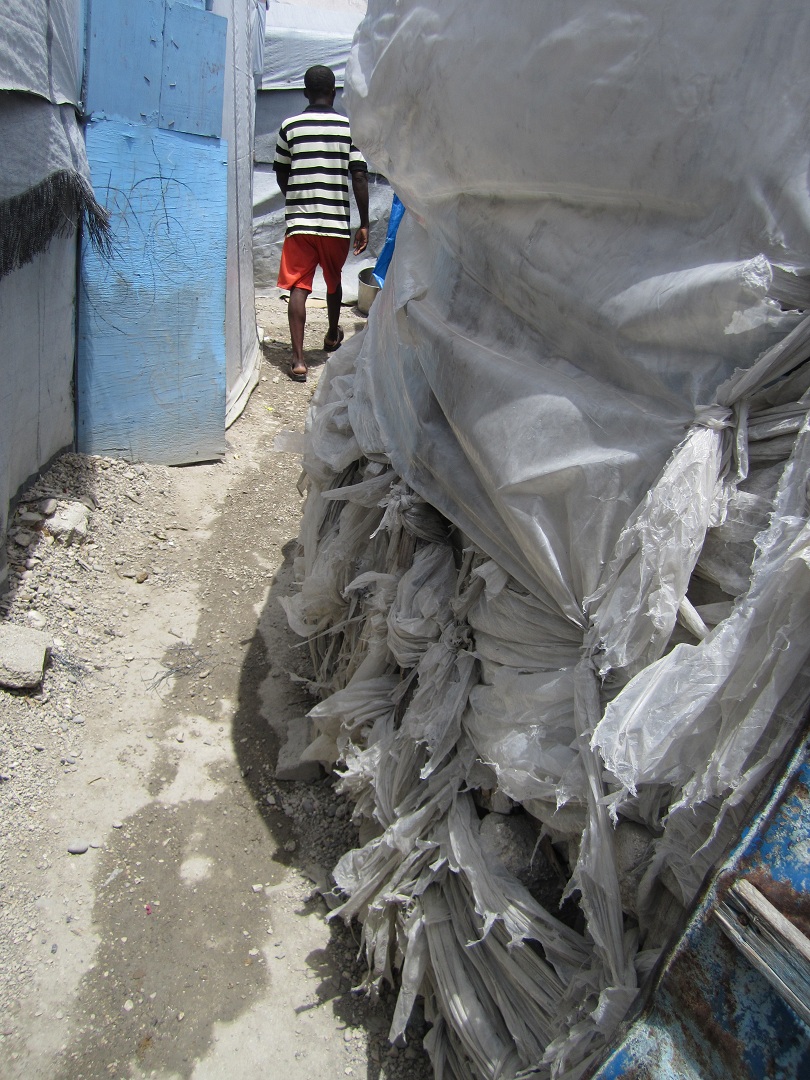This Friday, Sept 14, come hear Reyneld Sanon (Haitian housing rights activist) and New Orleans lawyer/professor Bill Quigley speak on housing rights and reconstruction after Haiti's devastating 2010 earthquake:
We've been discussing much about types of displacement, their causes, and how they are addressed. This week we will focus on Haiti's reconstruction, with a presentation by a friend who recently worked with Haitian organization ITECA (link goes to secondhand description) in Gressier (near Leogane, the epicenter of the quake).
note the lack of website for ITECA: it is important to note what we find in mass media with regard to who is conducting rebuilding efforts in Haiti, as many of the efforts by Haitians maintain little-to-no web-presence, compounding the assumption that international organizations are saving the day as Haitians remain incapable. This ties in to Haiti's history as a county with little self-determination, while much of the international community's efforts have been criticized as "photo-op philanthropy" with little on-the-ground results for Haitians and much money wasted on infrastructure and over-pay of international workers.
While around 500,000 Haitians remain internally displaced with little infrastructure, the Under Tents campaign (website down at time of posting) is fighting for a comprehensive housing plan, demanding
- an end to the forced eviction of Internally Displaced Persons' (IDP) camps
- designation of land for permanent housing
- a centralized government institution to coordinate and implement a social housing plan
- allocation of funding to carry out these goals
Haiti's rebuilding has many faces, as housing, public infrastructure, and private businesses all faced destruction in urban areas such as Port-au-Prince and Jacmel as well as in rural areas that have received much less media attention. Haitian groups, individuals (local and international), NGOs of various sizes, and international governments have all played roles, with large-scale non-Haitian organizations such USAID and the UN maintaining powerful voices throughout. Haiti Grassroots Watch tells the story of Champs de Mars camp residents.
Some NGO's work as apolitical contractors to rebuild certain areas or structures: Architecture for Humanity is working in Villa Rosa, Port-Au-Prince as well as with several other projects, as part of a larger-scale approach to rebuild in a way aimed at sensitivity to local needs and realities.
Some projects are created by foreign groups for economic development: Caracol industrial park, a US-backed development project that sadly seems to point towards exploitation of Haitian laborers for the benefit of international markets.
 |
| from "Too Soon for Carnival: Sweeping Haiti's 400,000 Poor Back Under the Rug" |
some relevant documents from past classes to check back over:
-see end of previous post re:President Martelly's 16/6 plan for relocating IDP camps
-"Confusions’ and Palava: The Logic of Land Encroachment in Lofa County" - describes the clash of customary use-valued land tenure systems and title-based market-valued land tenure systems in Liberia. Land titling in Haiti has often been informal, and titling records were also lost in the earthquake in many cases. Many people left in Internally Displaced Persons' camps are those who did not have formal title to the land they were living on.
cadastre: ca·das·tre also ca·das·ter (k -d s t r). n. A public
record, survey, or map
of the value, extent, and ownership of land as a basis of taxation.
of the value, extent, and ownership of land as a basis of taxation.
